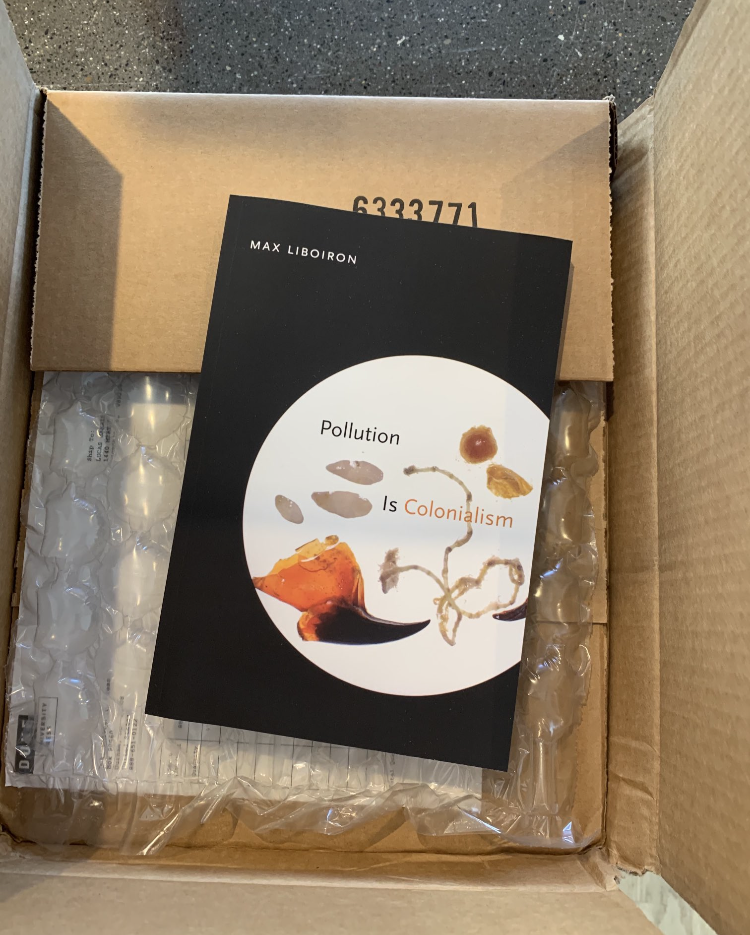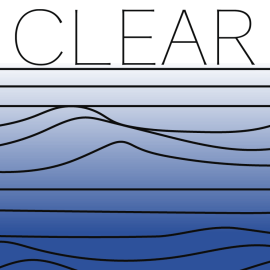Table of Contents
- Is the book accessible to my chosen audience(s)?
- How do they relate to their authors?
- What is their peer review process like?
- Will they allow the formatting choices I require?
- How long does it take?
- What are the royalties like?
- Is my book pretty?
- What kind of editorial support is there?
- Prestige
- What are my review obligations to the press after I publish?
One of my goals in research (and its circulation!) is to lead with values first. This includes choosing a book publisher in academia, a place that seems rather overdetermined at first. But there’s some wiggle room and important differences between presses. I happen to love Duke Press because they align best with my values, especially for Pollution is Colonialism. Here are the questions I asked various presses (both via email, zoom meetings, and in-person at conferences where you can just email them and book a meeting time while they are hanging at their booths–for real, they are waiting for your email. they are bored there and have already read all the books around them!). This list of things to consider reflects my own priorities, but you will obviously have different deal-breakers and must-haves:
Is the book accessible to my chosen audience(s)?
Is it affordable in cost (Duke has a 50% off sale twice a year that makes my book $12 to buy new; some presses increase the cost of their paperbacks to decrease the costs of their hard covers)? Is there an open access program that I know I will get into (several presses have them, but often can’t guarantee your book will be in; Duke Press always publishes the first chapter free and open, though just the first chapter)? Will the press work with me when I use accessible language, write in more than one language, etc (check their other books)? Do they sell in x, y, z countries that are important to me because of where my research site or audience is? What kind of library packages do they have with public as well as academic libraries (they will literally have a staff person in charge of this)? Will there be an e-book? An audio-book? Do you get a discount code that you can share–the answer will be yes, so the follow-ups are: how much is the discount, and how long does the code last? For one of my presses, it was a 20% off code that worked for a month after publication. Blar. For Duke, it’s a 30% code that lasts forever and I’ve pinned it to my Twitter profile for prolific use. Whee!
How do they relate to their authors?
What is their author-to-editor ratio? I found this to be really, really important when another press I worked with didn’t get back to my emails often and got me mixed up with another author. Different editors have specialties in particular types of books, so when you talk to a press they can tell you which editor you will get or are likely to get. For the effs sake, ask other people who work with that editor what they are like!! I like a hands-off approach but a quick email when I come calling. I hate cheerleaders (for me, not in general!), and I need someone with a strong sense of ethics. I can check the latter by looking at an editor’s list of previous books. Did they publish some of the first queer of colour theory out there? Did they publish that awful unethical field study?
What is their peer review process like?
These differ in surprising ways. I choose Duke because they do double review– I get the reviews back, I do the edits, the edits go back out for review, I do it again. This is rare. Since I was writing a text about ethics, I really wanted this. It took more time. My reviewers were The Best (so also ask how they choose reviewers! If they just fling around for people in the field, you might just get Reviewer 2. If they work with their own authors and/or choose people they know give good reviews, you’ll get more out of it). One of my other books had four reviewers doing a single round of review and they had to fill out a one-page form. The result was four very different sets of reviews that were not in-depth enough to be helpful. It was like having no peer review at all but having to do responses to reviewers anyhow. I really like good peer review, so if you don’t like it at all maybe you will prefer the second way.
Will they allow the formatting choices I require?
Like footnotes, colour images (and who pays for those? Note it’s often authors), text that goes around and around in circles instead of straight lines (like The Future History of Water) or includes a music playlist (like Dear Science). This might be less important to you than it was for me. One of my favourite litmus tests when talking to editors was to say, as bluntly as possible: “I will have footnotes” and if they replied with, “well .. hemm… haw…nnnn…” or “never. you are a cog in our assembly line and must conform” rather than “sure, if it works and is needed” or “we’ve never done that before, but let me check some things” then I could tell how they would deal with more difficult questions. One thing I love about Duke is that I can use the book to make arguments through its formatting, from footnotes to Candian spellings to capitalizations and symbols in the text. That’s more expensive to format, and Duke was game. That tells me something about the press.
How long does it take?
If you’re going for tenure or promotion, a timeline might really matter. But a contract can be just as good as a book (check with your committee. It was for me). Duke takes a longer because of the double review. But it was a much, much better book. See the note below about advance contracts.
What are the royalties like?
I have two books. I make money off of one– like, actual money I can use to buy entire objects. The other not so much. Shop around. They will have a schedule of fees with different royalties for books sold in different countries and formats (e-books get me less than hard covers, for example).
Is my book pretty?
This is actually quite important to me. A beautiful book starts the argument on the cover page with its style and imagry. It gives a feeling to the argument. Ugly books are ugly. Plain books are plain. I want to eat beautiful books. How can you tell? Look at all their other books. They’ll have one or more in-house designers that do all covers. It was also important to me that I could provide my own images/do some of my own design for the cover. Some presses don’t let authors get in there too much. Ask other authors of their experiences on this one.
What kind of editorial support is there?
All presses do copy editing and formatting. Few presses do developmental editing, though some editors will. Some presses pay their own indexers, and others require that you do it yourself or pay someone to do it. Some presses go to lots of book fairs, submit your book to lots of award competitions, and put ads in the New York Times. Others put up a social media banner.
Prestige
This mattered to me because of promotion and tenure. I also wanted a press with a certain reputation to help elevate my sub-field. Don’t ask the press about their reputation– ask the Internet and press rankings.
What are my review obligations to the press after I publish?
I didn’t know to ask this in advance and I wish I had, just so I knew. I have one press that pops into my inbox for a request about once a year, and doesn’t give me allllll the Indigenous texts to review regardless of my actual specialty. And when I say no, they work with me to ask about the reasons (is it because I’m too busy? No worries. Is there an ethical issue with the author or the book proposal? What is it?). I have another press that asked me to review a book while I was revising my book with them (did they know I was busy?) and gives me books to review outside of my area of expertise.
A few other things to consider when you get to the contract:
- The same press might have more than one avenue to a contract. I didn’t have to write a book proposal for Duke, for instance. I made a pitch, got a verbal yes, sent in a few chapters, got a contract. For another press, even though most of the book was already written they still wanted a proposal. I know other people who got contracts in different ways at both of those same presses.
- An advance contract is a contract. It’s not like there will be a second contract later. It just means you have to write less of the book now when you get the contract rather than before you get the contract. You may want or need this for promotion and tenure. Not all presses do them, some do them all the time. Ask.
- READ YOUR BLOODY CONTRACT and ask to change it if needed. They can and often will make changes. I’m not sure who told you that legal contracts were set in stone before you signed them, but they were wrong. Horrible story: one of my books is not with my beloved press because one of my co-authors signed a contract that said a press had first right of refusal on his next book. That is creepy and bad. It just so happened that his next book was co-authored with me, and I was first author. We had to go with his press. When I got that same contract, I had that line deleted and sent to hell. No problem, they said.

